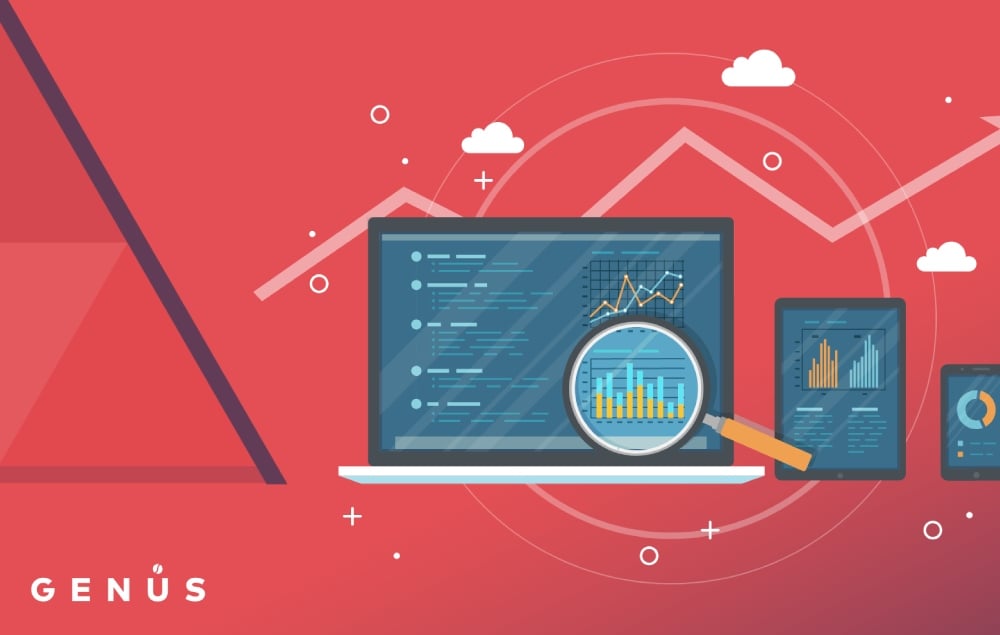
Management accounts, also known as management information reports, are reports prepared for the use and benefit of internal management or for external stakeholders in a business, such as banks and angel investors.
These reports are usually prepared on a regular basis, such as monthly or quarterly. They provide a clear, detailed analysis of the financial and operational performance of the business.
What is the purpose of management accounts?
Management accounts are designed to enable better, more informed business decisions about the strategy and current financial position, and to monitor progress towards business goals and targets. It is essentially a way for business owners, or those making business decisions, to sleep better knowing that they are making the best decisions for their business.
Who are management accounts for?
While statutory (or year end) accounts have specific recipients (such as investors, Companies House and HMRC), management accounts are much more flexible.
Management accounts can be produced for anybody with a significant stake, interest, or influence in the direction of the business. This includes owners and shareholders of a business, board members, senior managers, their accountants, tax advisors or investors.
Why are management accounts so important?
Management accounts are important to businesses because they enable senior management to make better decisions and respond quickly to opportunities or potential risks.
These reports, which include both financial and non-financial KPIs, provide an essential foundation for good, data-driven decision-making.
A study by Accounts and Legal found that SMEs using Management Accounts to inform their business decisions grew 28% faster than their market average.
What do management accounts typically include?
Management accounts typically include detailed financial statements, such as balance sheets, profit & loss reports, and cash flow statements. These reports are essential but don’t always tell the full story.
Management accounts take financial statements further, adding context and presenting data in an insightful, actionable way that is tailored to your goals.
They may include operational metrics, such as sales and production figures, inventory levels, and customer satisfaction metrics. They may also have other important information, such as budget versus actual comparisons and variances, forecasts, and trend analyses.
Management accounts generally include the following elements:
- Profit & loss report: This shows the company's revenue, costs, and profits for the period covered by the accounts.
- Balance sheet: This provides a snapshot of the company's assets, liabilities, and equity at a specific point in time.
- Cash flow statement/forecast: This shows the company’s actual cash flow over the period covered by the accounts and forecasted cash flow/P&L for a future period.
- Key performance indicators (KPIs): These are measures of a company's performance, such as sales growth, profitability, conversion rates, feedback and return on investment.
- Budget comparison: This compares the company's actual performance against its budget, highlighting any variances.
- Analysis and commentary: Management accounts often include a detailed analysis and commentary on the financial performance and position of the company, highlighting any trends and issues that need to be addressed.
The content of management accounts can vary depending on the size and complexity of the company, and the information needs of its management. However, the above elements will typically be found in most management accounts.
How to prepare your management accounts
Management accounts can be prepared with the following general steps. The specific requirements for your management accounts may vary depending on the size and nature of your business.
Gather and organise your financial data
Collect all relevant financial information, such as sales and revenue figures, expenses, and cash flow data. This data can be found in your accounting software, bank statements, invoices, and receipts.
Ensure the accuracy of the data by checking external documents e.g. make sure the bank balance in your accounts system matches the statements, or that HMRC balances match up with the HMRC online accounts.
Prepare your profit & loss report
Calculate business revenue and expenses to determine your profit or loss for a specified period. Ensure income and expenses are split into the periods to which they relate, this may include calculating accruals/prepayments and work in progress.
The purpose of this is to ensure you are viewing the information that is relevant for that period – not based on when invoices are raised/paid. This will ensure the profit margins you are making decisions from are accurate, with costs directly relating to the sales showing in that period.
Also, consider adjustments such as depreciation and an estimated Corporation Tax liability for the year.
Prepare the balance sheet
This shows the financial position/value within your business from the very start of it being created to a specific point in time, listing its assets, liabilities, and equity. Essentially, this will enable you to view what the business is owed and what it owes.
For example, if you see debtors increasing, this may indicate that the current credit control process might not be effective.
Prepare a cash flow statement
A cash flow statement shows the flow of cash in and out of your business and can help you identify any potential cash flow issues or the impact of any potential opportunities.
Analyse your financial data
Use your management accounts to analyse the financial performance of your business and identify areas for improvement.
Look for trends and compare the current figures with those of prior periods. Bring in non-financial data to ensure the information you are looking at provides a well-rounded view of the business as a whole.
Communicate the results
Present the results of your management accounts to shareholders, managers, or investors. Understand and be prepared to explain any variances from the budget, and provide recommendations for improving financial performance using the data available in the reports.
Why doesn’t every business have management accounts?
For something as clearly beneficial as management accounts, surprisingly few businesses take advantage of them.
There are a few common reasons for this:
- a lack of awareness or knowledge of management accounts in general
- insufficient time or resources to put towards their preparation
- an assumption that they are too complex or expensive for a smaller business
Some businesses may be too small to see the full benefit of detailed Management Accounts – as the time to produce them can be more than the benefit at this stage. But basic reporting that is more regular than statutory accounts can be easy to produce with the right tools, and massively beneficial.
Businesses should aim for the standard of management accounts to be that of a ‘mini year end’ meaning that there should be no surprises in the accounts when the statutory annual accounts are produced.
Why should you work with a qualified accountant?
The Genus team have prepared robust management accounts for a huge variety of businesses. We can bring expertise and objectivity to help understand your financial position and make informed business decisions. We will also help ensure that your accounts are prepared accurately and in compliance with UK accounting standards.


Alicia Williams
I am the Director of the Genus team at Shorts, a chartered certified accountant and Xero specialist. I specialise in cloud-based accounting solutions, particularly Xero and add-on software, helping clients streamline processes and improve efficiency. As a Client FD, I work closely with businesses to give them a clear understanding of their current position and support their long-term planning and growth.
View my articles